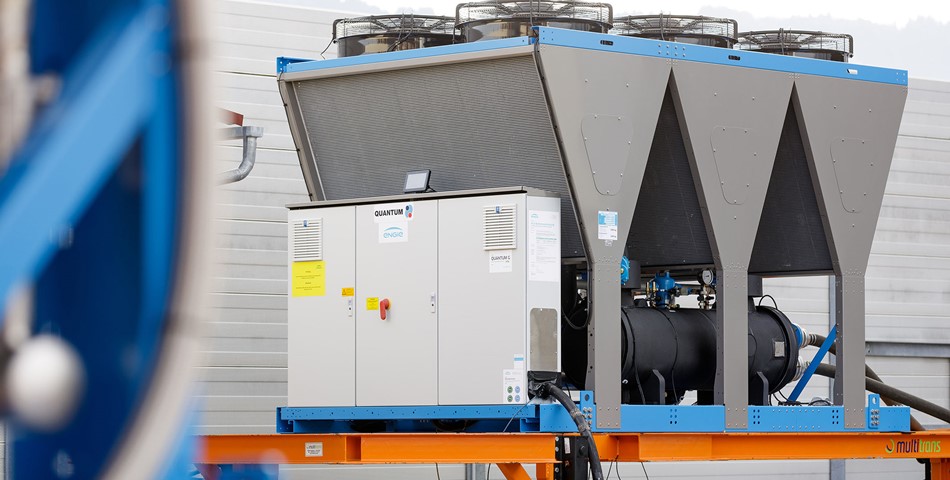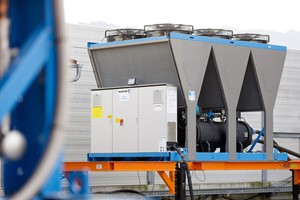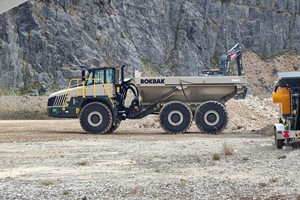ENGIE Refrigeration has added a new refrigerant to its portfolio. R-515B is now available for QUANTUM chillers as an alternative to R-1234ze. R-515B is eco-friendly, non-toxic and non-combustible, and thus especially safe. With its introduction of the new refrigerant, the company is setting a clear example for more sustainability.
ENGIE Refrigeration is one of the first manufacturers in the world to use the refrigerant R-515B. It was developed as an alternative to R-134a and can be used instead of R-1234ze in the form of a drop-in refrigerant. The refrigeration and heating specialist from Lindau on Lake Constance is thus providing added value for its customers.
“Refrigerant R-515B combines the positive properties of a 77 percent lower greenhouse potential than R-134a with a classification as safety level A1 according to EN 378-1. This means that, unlike R-1234ze (A2L), it is considered a non-combustible safety refrigerant”, says Daniel Keller, head of product management at ENGIE Refrigeration.
R-515B is an azeotropic mixture, 91.9 percent R-1234ze and 8.9 percent R-227ea. With a GWP value of 293 IPCC-AR4*) and 299 (IPCC-AR5**), R-515B meets the requirements of the F-Gas Regulation – until at least 2030. Another important advantage for companies operating existing machines run on R-134a: because R-515B is classified as A1, no additional safety measures need to be taken for the machine room containing the chiller or heat pump. From February 2021, the air-cooled, water-cooled and split models of the QUANTUM series are available with the refrigerant R-515B as an alternative to the previous standard refrigerant R-1234ze.
“With the new refrigerant R-515B, the chiller achieves almost the same refrigeration capacity and energy efficiency as with R-1234ze”, says Daniel Keller. “This means that R-515B is suitable for customers from all industries that require optimal refrigeration capacity and also wish to switch to an eco-friendly and sustainable refrigerant."
*The Fourth Assessment Report (AR4) from the Intergovernmental Panel on Climate Change (IPCC) of the United Nations appeared in 2007.
**The Fifth Assessment Report (AR5) from the Intergovernmental Panel on Climate Change (IPCC) of the United Nations was published in 2014/2015.














